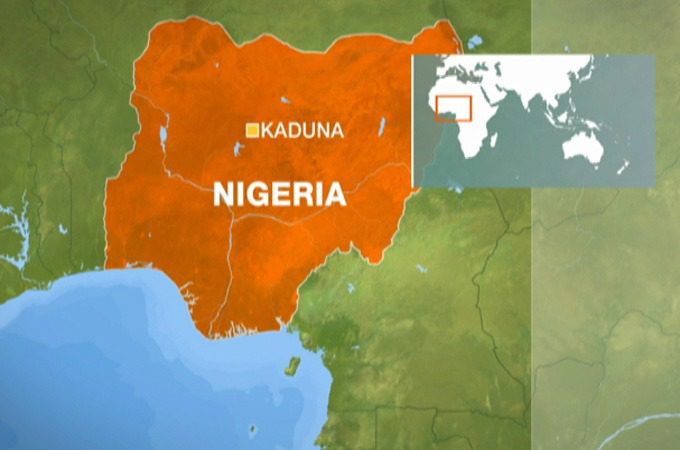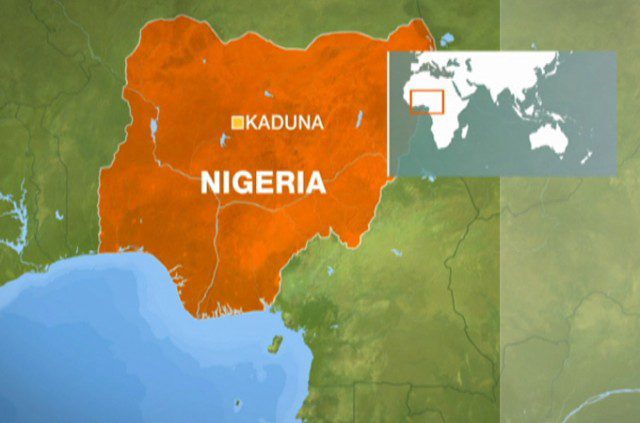Global Issues
La Chatelier and the coming Northern uprising -by Tahir Sherriff

‘Any change in status quo prompts an opposing reaction in the responding system’
This position was made by french metallurgist and management scientist Henri Louis Le Châtelier (1850-1936). I refer to this quote with slight belief that it holds tell tale signs in the light of understanding the recent events in Northern Nigeria.
There is a mini spring going on in Northern Nigeria, few don’t see it, fewer still have difficulty understanding it. The activities in Northern Nigeria today is clearly no longer business as usual. Like Chatelliers principle defined above, the region is beginning to counter-react.
For years the leadership and elite structure of Northern Nigeria remained rigidly the same. The gap between the rich and poor continues to increase exponentially as also the lack of social empathy.
To the effect the submissive nature of typical northern followers has perhaps been stretched to its limit to perhaps a point where drugs, daggers and extreme violence have found their way into the picture and replaced the regular societal codes.
Who is responsible? and how did it get here? Some ask. Perhaps a look at the approach of those who are charged with the responsibility to govern the region, or a glimpse at the thousands of almajirai’s, the endless strings of crippled beggars, and gross under-development that has plagued the northern region over the years, may aid in identifying the elephant in the room.
A majority of those who have ruled or served as leaders at every level in Northern Nigeria, have been unable to bring about, or facilitate the much needed economic and human development for their population, and this has continued to such an extent that it is clear, they lack the capacity.
Recently, it has also become clear that the masses are becoming entirely disillusioned. Followers have began to stop looking to only God to bring about the necessary development, especially in the face of religious discomforts, social and ethnic tensions. More also in the face of reckless corruption. Through external interactions, more have also begun to see through the charade of religion, the ‘us-against-them’ preachings, as well as who is or isn’t a part of the arewa.
Non-northerners too have not been left out in the awareness that the military & academic infrastructures in Kaduna, or the commercially active centres in Kano do not entirely depict the whole picture of Northern Nigeria. Until the activities of terror in Nigeria, people had not even asked about what was going on in states like Borno, Yobe, or Adamawa. How the government was run, or how people lived.
Now, more have been enlightened, many now agree that the problems being witnessed in the north transcends beyond race, religion or ethnicity. It simply boils down to governance. Of course this is a similar reflection obtainable in several parts of Nigeria, but the plight of the North speaks more glaring, in the face of an absence of sufficient economic resources beyond human labor and subsistent agriculture.
Another question is whether this is a natural process in societal development, or if the neglect point to a an adjustment created to suit a selected few? This cannot be entirely verified, but if all the ‘mai-ruwa’, ‘mai-guard’ ‘mai-achaba’or ‘mai-goro’ you see on the street, had a minimum of an SSCE where would they then go? If the thousands of ‘yandabas’plying the nothern surburbs, or labourers moving from site to site each had a diploma from a technical school? What would happen to the northern elite structure?
Even the competitive few who battle through several levels of determined academic performances are shocked to find out after graduation, that the positions for which they were set to fill have been taken over by more ‘paper qualified’ people that recently returned from the diaspora.
It is now practically impossible to identify a person as a middle-class northerner. A northerner is either rich or poor, no go-betweens. Yet these weak northern states endure because their very weakness benefits state elites, who put up no significant incentive toward capacity-building, good governance, or development.
Like earlier said, there is a mini-spring in northern Nigeria, a situation which has been caused by the constant failure of the northern elites to lead their societies to growth and development. A failure which has led to a gradual rise in disenchantment with democracy, disbelief in governance and skepticism in electoral participation.
A failure which shows its adverse effects in high levels of drug abuse, opposition to legal authorities and an increasing desire to un-surp the system. An attack on the police and military shows a failure of the state security framework. An attack on the emir, indicates disrespect for figures of authority and leadership, just as attack on the democratic system with a desire to implement a different system shows a total failure in governance.
In the preparation to elections in 2015, the questions to be asked must include not only which party is to dominate the elections in each northern state, but also who is to be selected and most importantly , whether those selected are qualified to take those regions to a better position post election. For as stated by Dr. Hakeem Baba Ahmed while making a speech at the launching of the Ahmadu Bello Foundation.
Hakeem pointed out, that a revolution is brewing, and ill managed, this may remove those who currently man the affairs of northern Nigeria, without the guarantee of replacing with a better lot. 1. Le Châtelier’s Principle states that a system always acts to oppose changes in equilibrium. To restore equilibrium, the system will favor a pathway to reduce or eliminate the disturbance so as to re-stabilize at equilibrium. 2. Any change in status quo prompts an opposing reaction in the responding system.




















